
Nature
14:39, 16-Oct-2018
How snow monkeys enjoy the winter in hot springs
Updated
13:56, 19-Oct-2018
By Li Yunqi
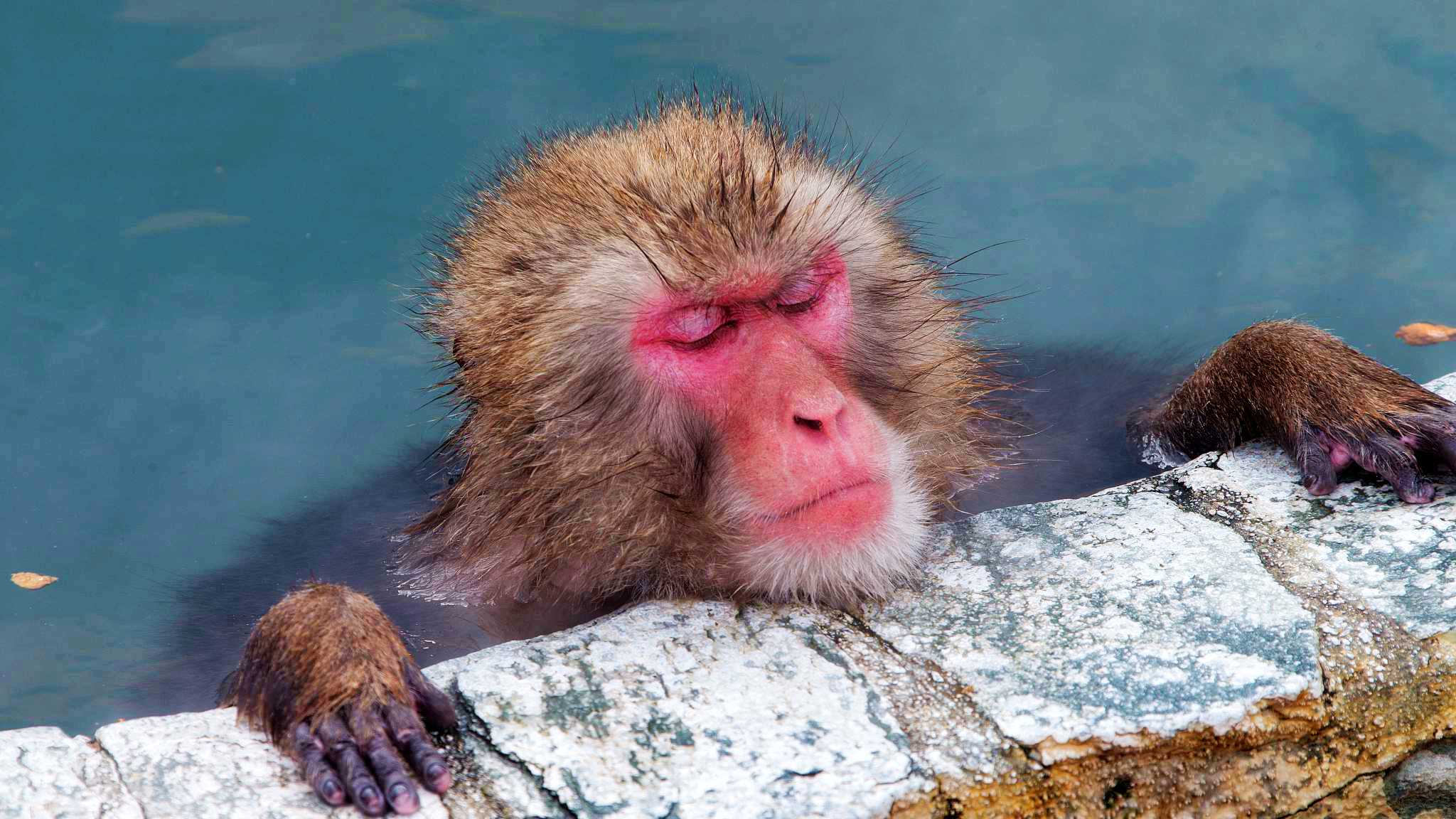
Every year in winter tourists from around the world flock to the Jigokudani ("Hell Valley") in Nagano Prefecture in the center of Japan to see the monkeys enjoying their heavenly times by bathing in hot springs.
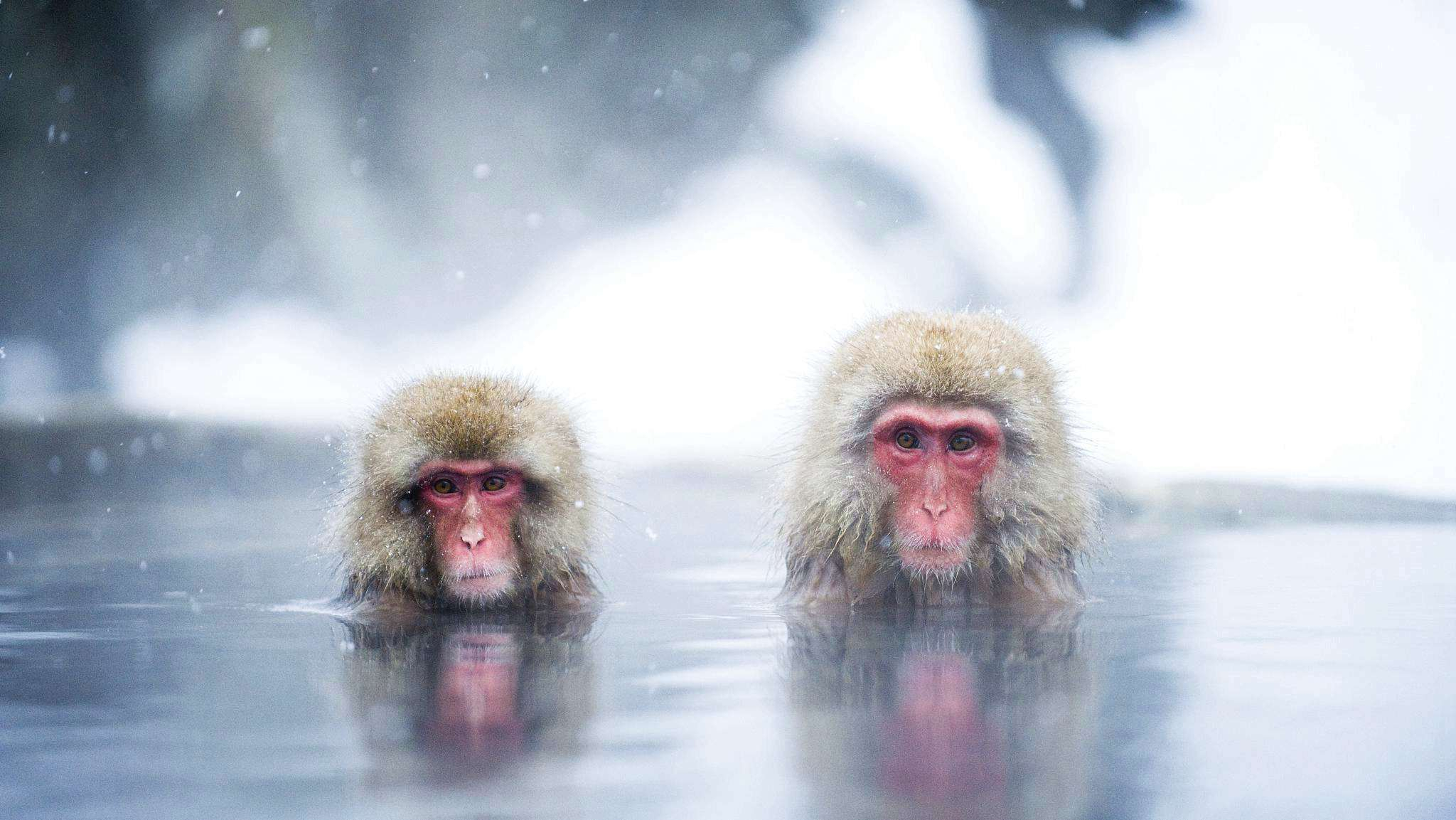
Two macaques are bathing together. /VCG Photo
Two macaques are bathing together. /VCG Photo
The Japanese macaque, popularly known as the snow monkey, is a species that is native to Japan which inhabits all parts of Japan except Hokkaido and Okinawa. They can survive in areas where the temperature could drop to 10 degree Celsius below zero and snow covers for almost one-third of the year. It is very unusual for nonhuman primates to live under these conditions.
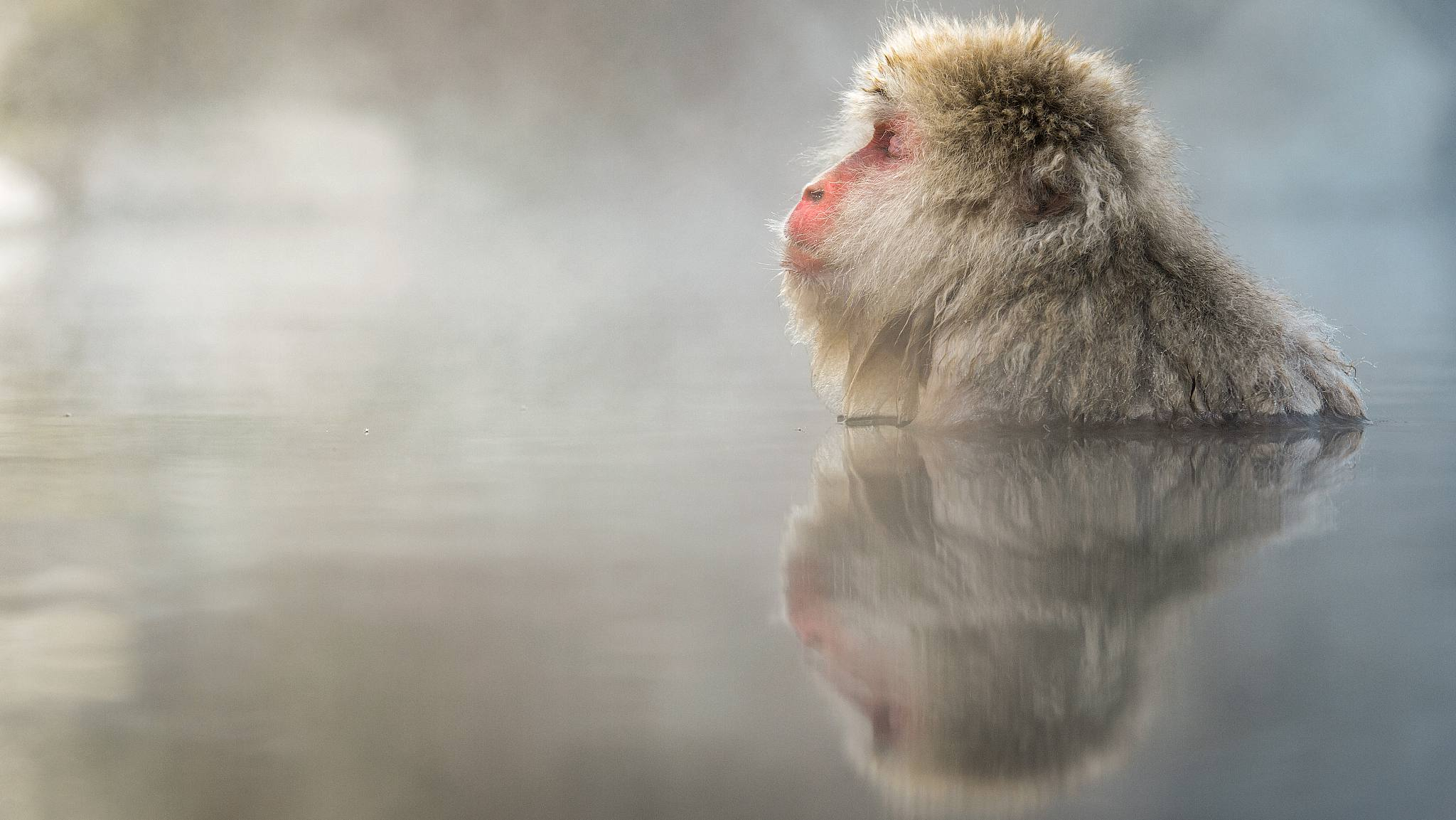
A meditating macaque. /VCG Photo
A meditating macaque. /VCG Photo
The Japanese macaque is covered with brown or grayish hair and has a bright red color on its face and posterior. The thickness of the hair increases as temperature decreases and allows the macaques to adapt to temperature as low as 20 degree Celsius below zero.
Just like humans, the macaques also gets red-faced and sleepy after staying too long in the hot spring. Even though most parts of their bodies are covered with hair their hands and feet are still exposed in the cold weather, so they rub their hands and feet every once in a while when they walk on snow.
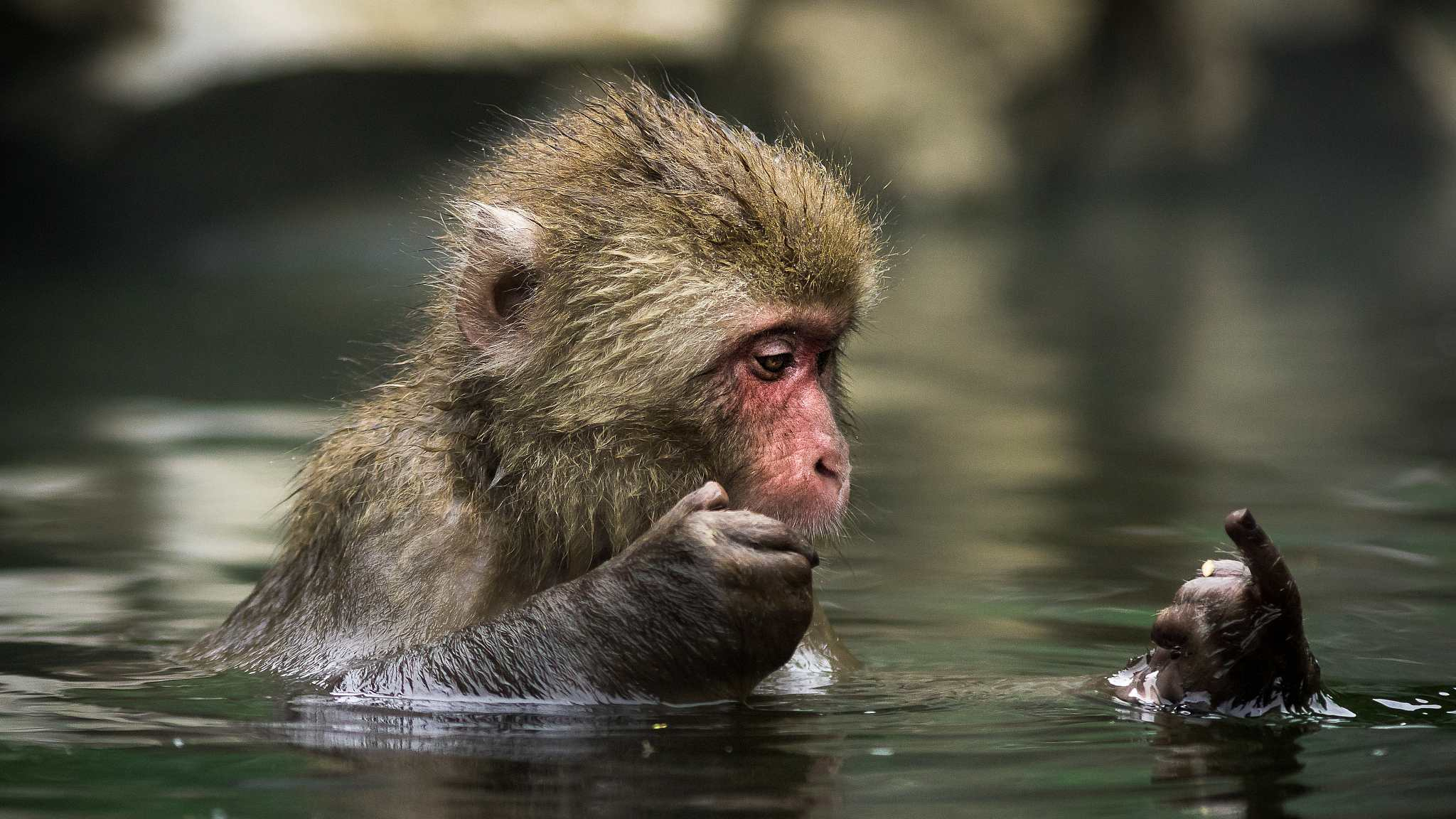
A macaque is looking at its hand. /VCG Photo
A macaque is looking at its hand. /VCG Photo
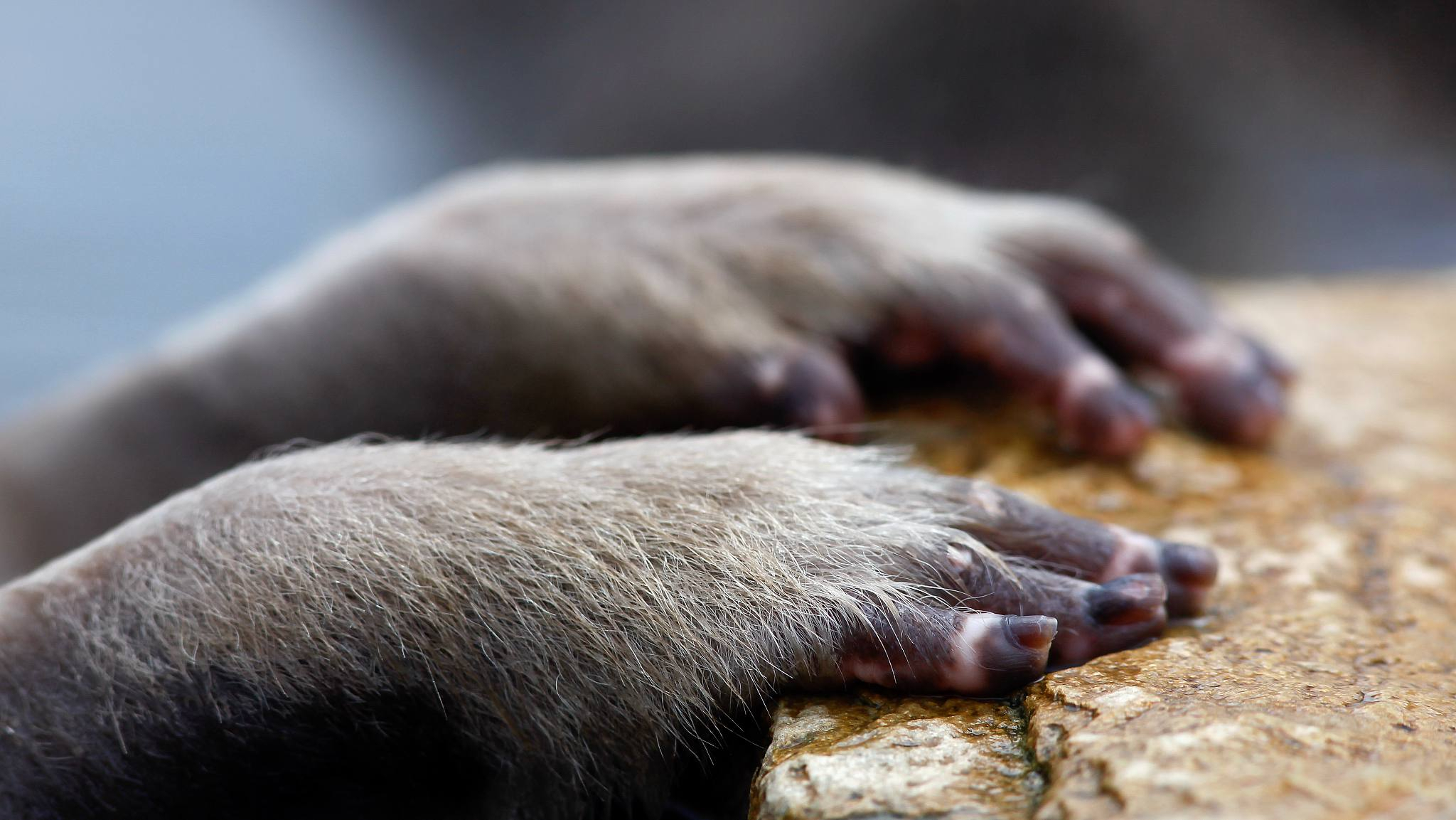
The hands of a Japanese macaque. /VCG Photo
The hands of a Japanese macaque. /VCG Photo
What nature brings as a gift to help stay warm for the macaques that live in the Jigokudani is the hot spring. Imagine a place where hot water fills the air with clouds of steam, melting the snowflakes as they come drifting down while the monkeys, their red faces filled with pleasure, look up at the sky. This is a scene one can hardly see anywhere else in the world.
The interesting behaviors of these macaques during their hot spring baths exhibit social traits that are strikingly similar to that of humans. They like to groom and rub each other and huddle together after they get out of water in order to stay warm.
When they rest their arms on the bank while soaking their bodies in the water, they communicate with each other by emitting various vocalizations as if they are discussing something important.
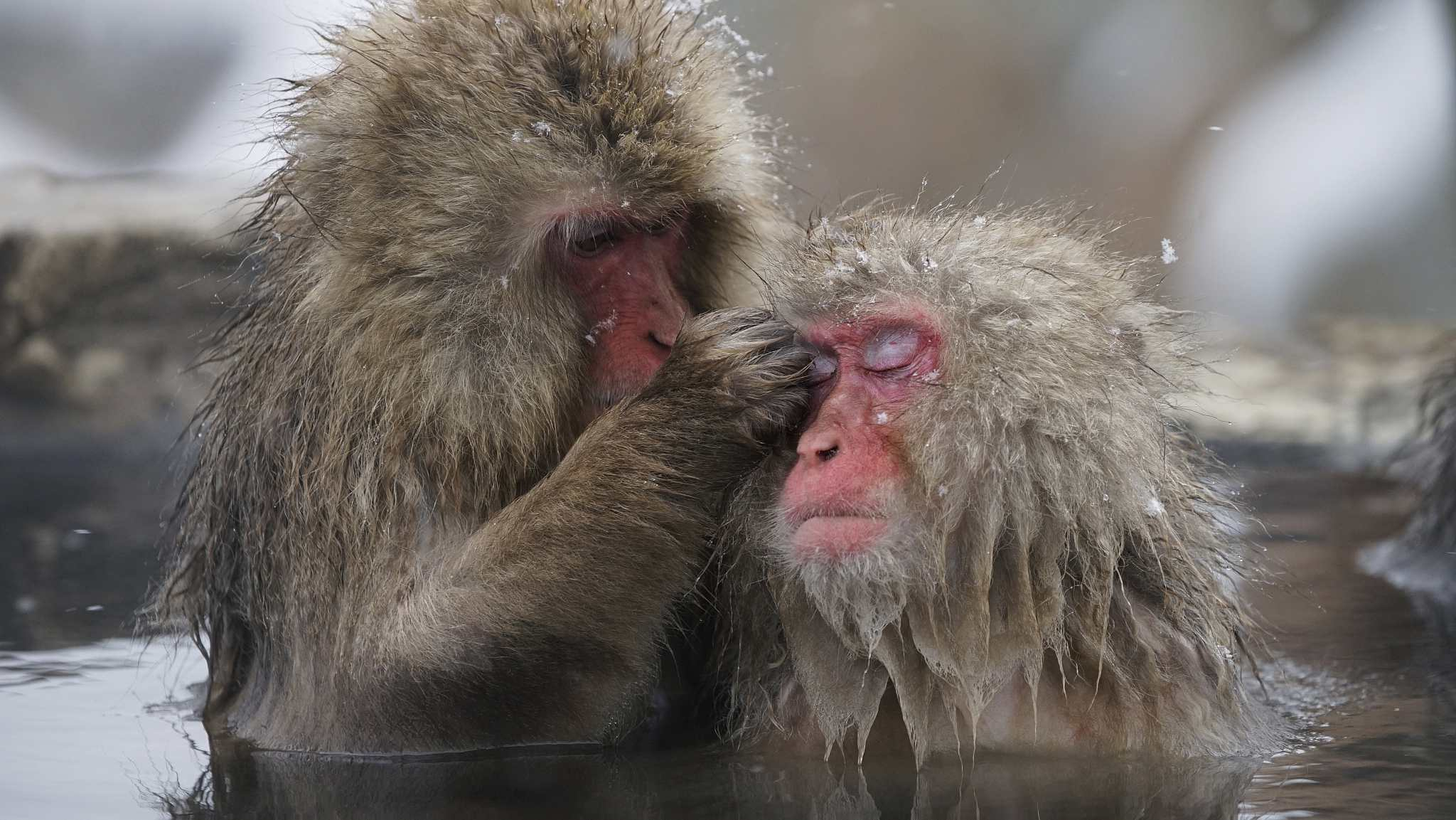
A Japanese macaque is rubbing the other's eyes. /VCG Photo
A Japanese macaque is rubbing the other's eyes. /VCG Photo
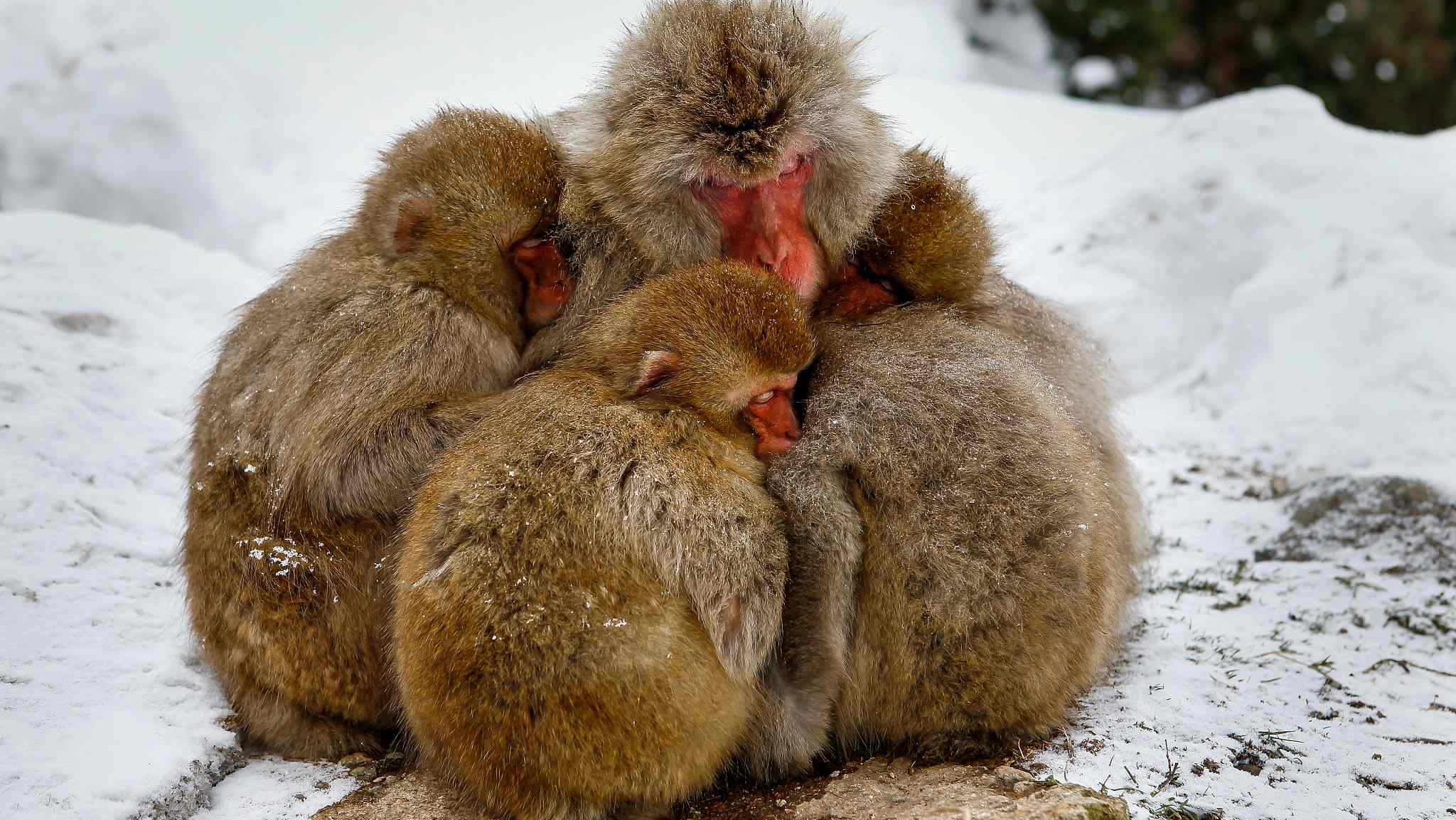
Huddling together. /VCG Photo
Huddling together. /VCG Photo
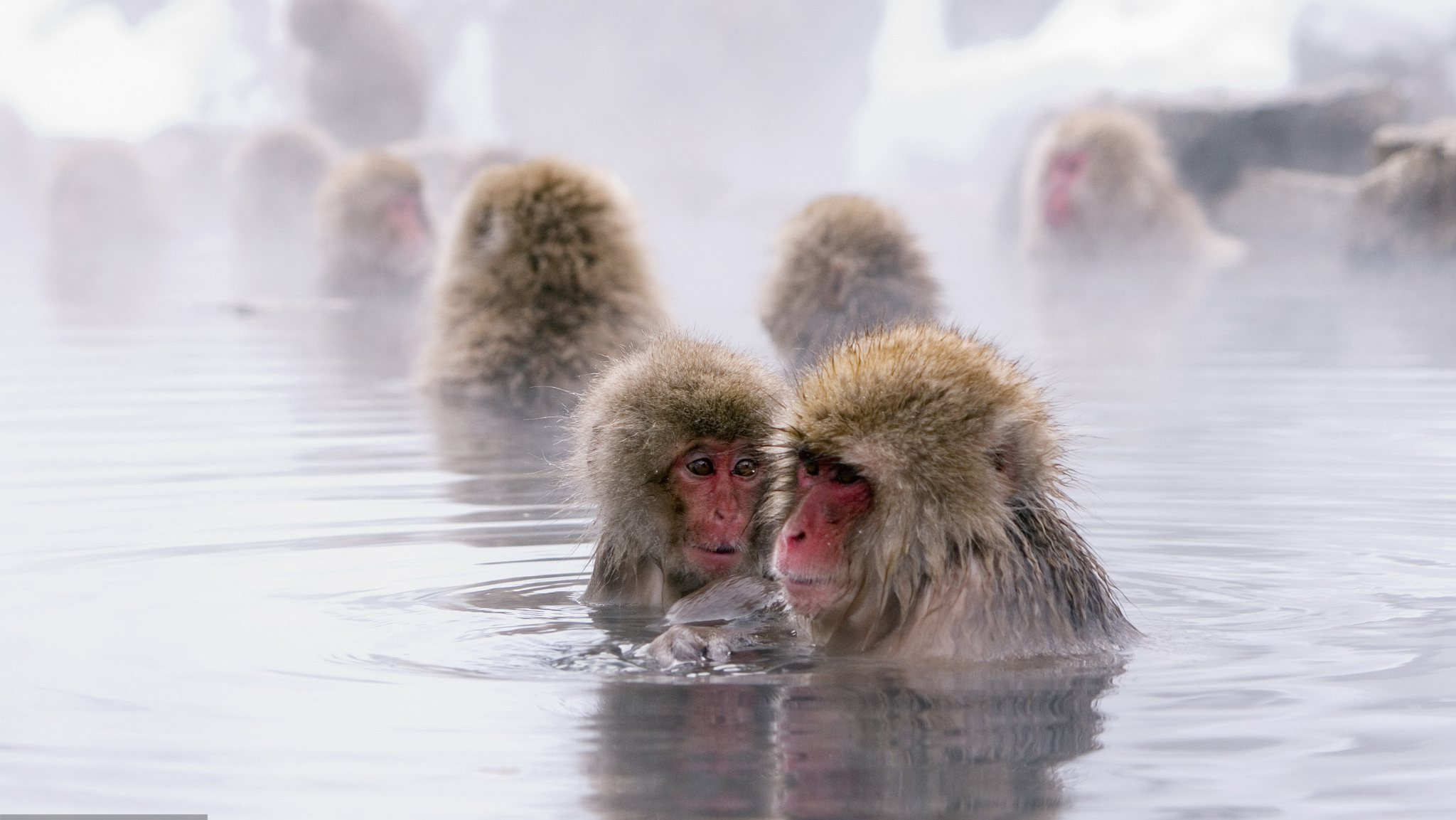
Mother and child. /VCG Photo
Mother and child. /VCG Photo

Grooming. /VCG Photo
Grooming. /VCG Photo
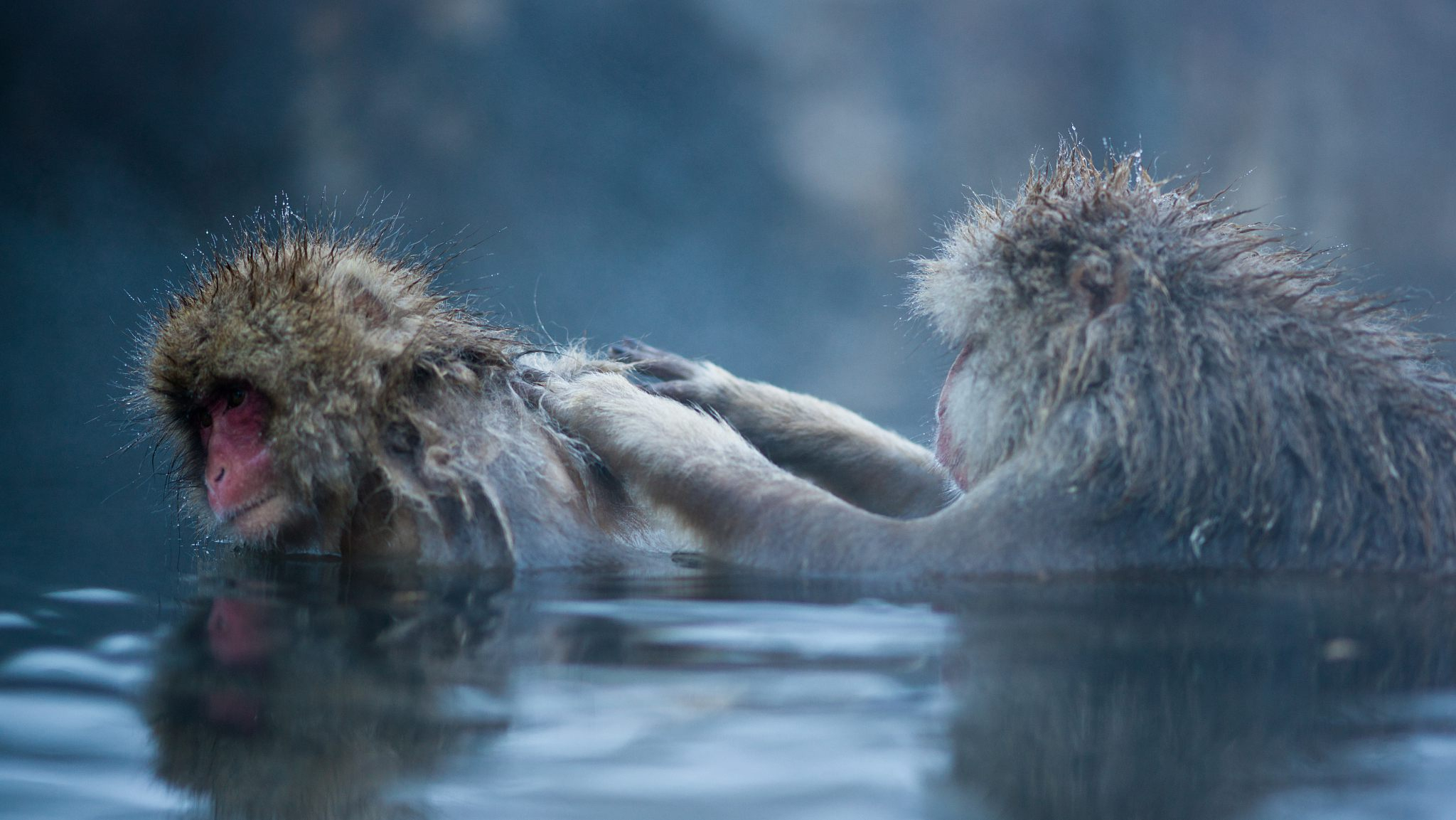
Grooming. /VCG Photo
Grooming. /VCG Photo
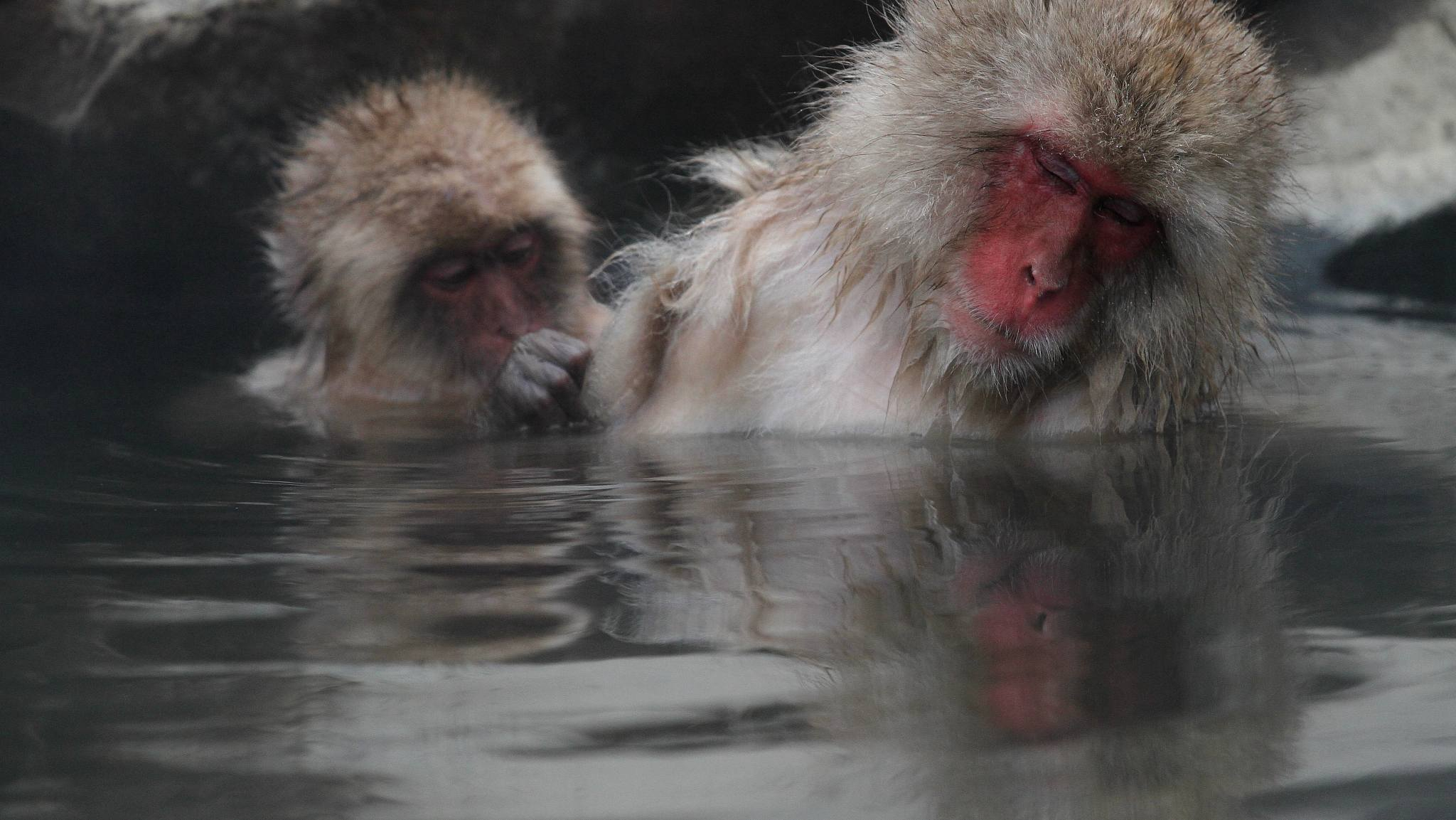
One macaque is giving the other a massage. /VCG Photo
One macaque is giving the other a massage. /VCG Photo
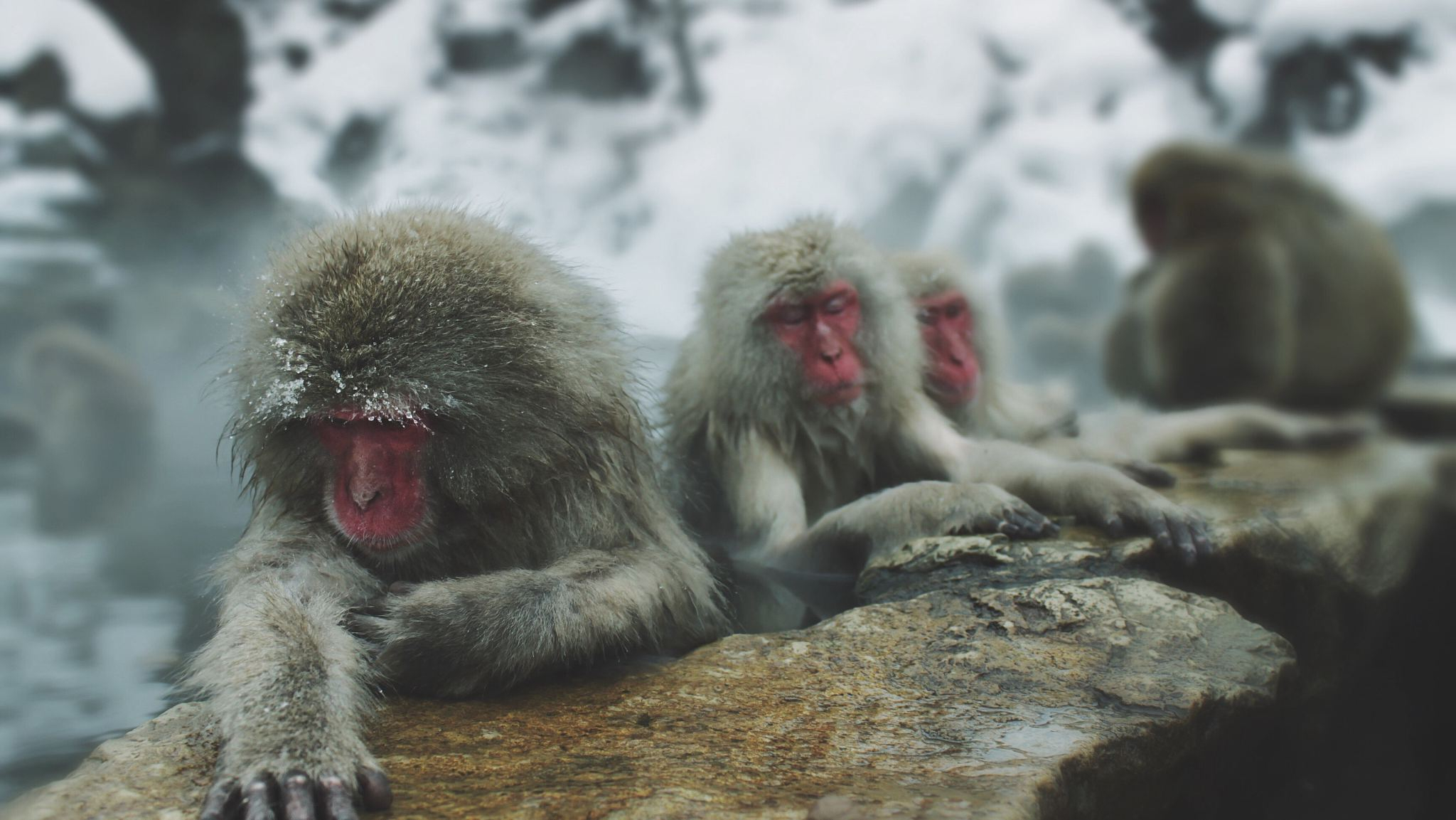
Some macaques are resting by the pond. VCG Photo
Some macaques are resting by the pond. VCG Photo
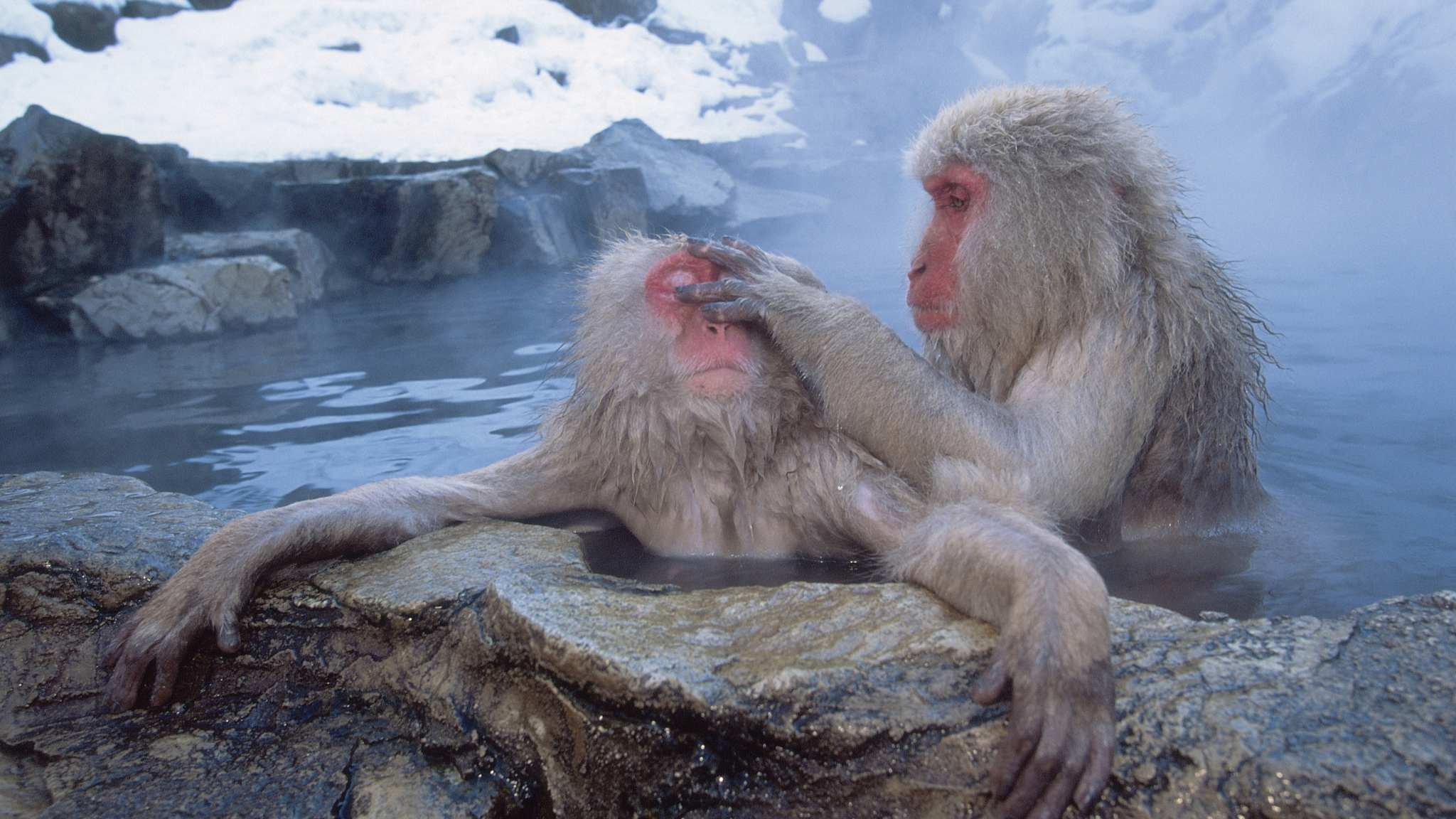
"Close your eyes." /VCG Photo
"Close your eyes." /VCG Photo
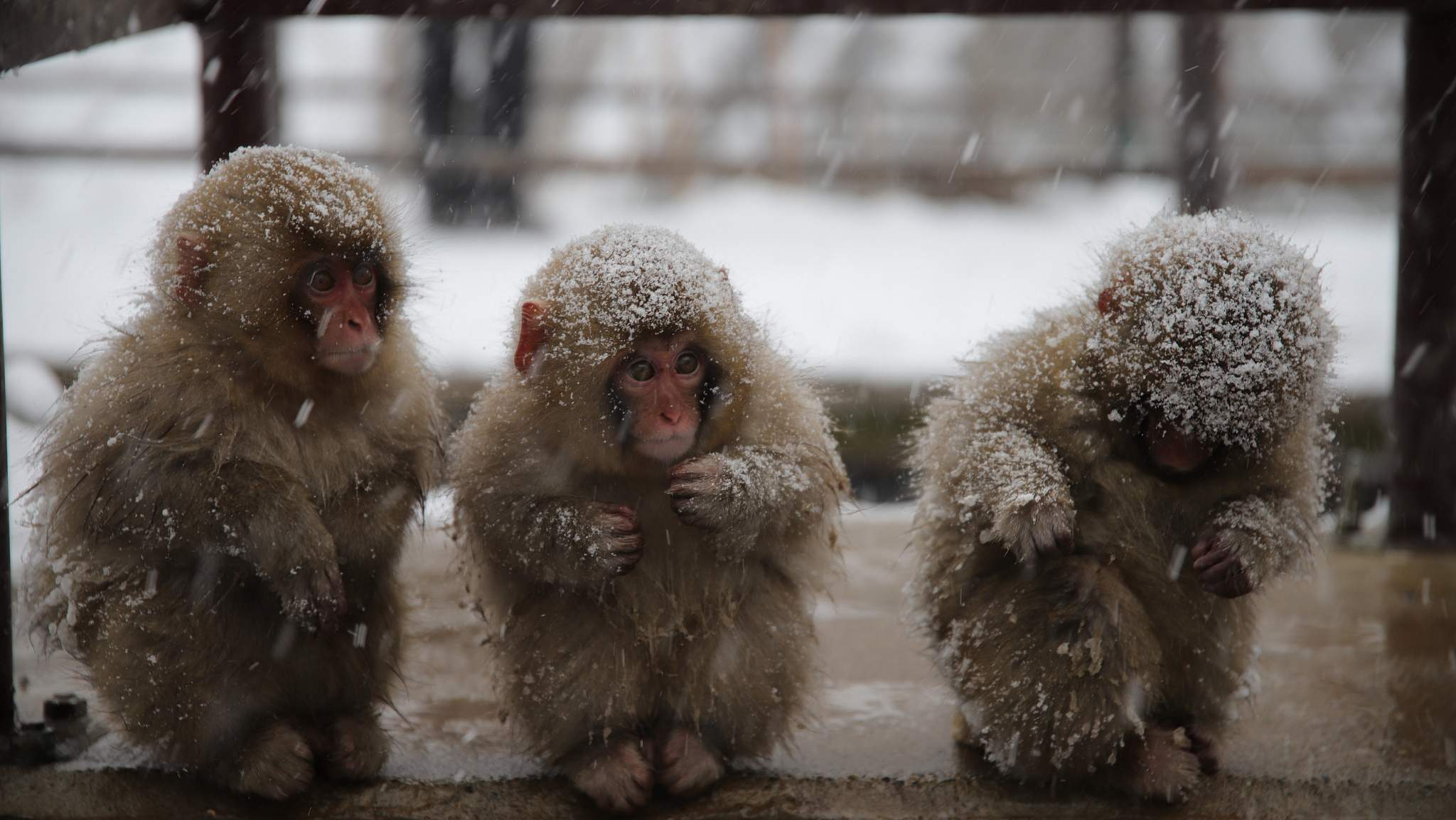
Baby macaques by the pond. /VCG Photo
Baby macaques by the pond. /VCG Photo
It is notable that this hot spring at the Jigokudani is only open to monkeys and no human is allowed to bathe in it, which also makes it the best place for both the monkeys and the wildlife observers. Previous

SITEMAP
Copyright © 2018 CGTN. Beijing ICP prepared NO.16065310-3
Copyright © 2018 CGTN. Beijing ICP prepared NO.16065310-3